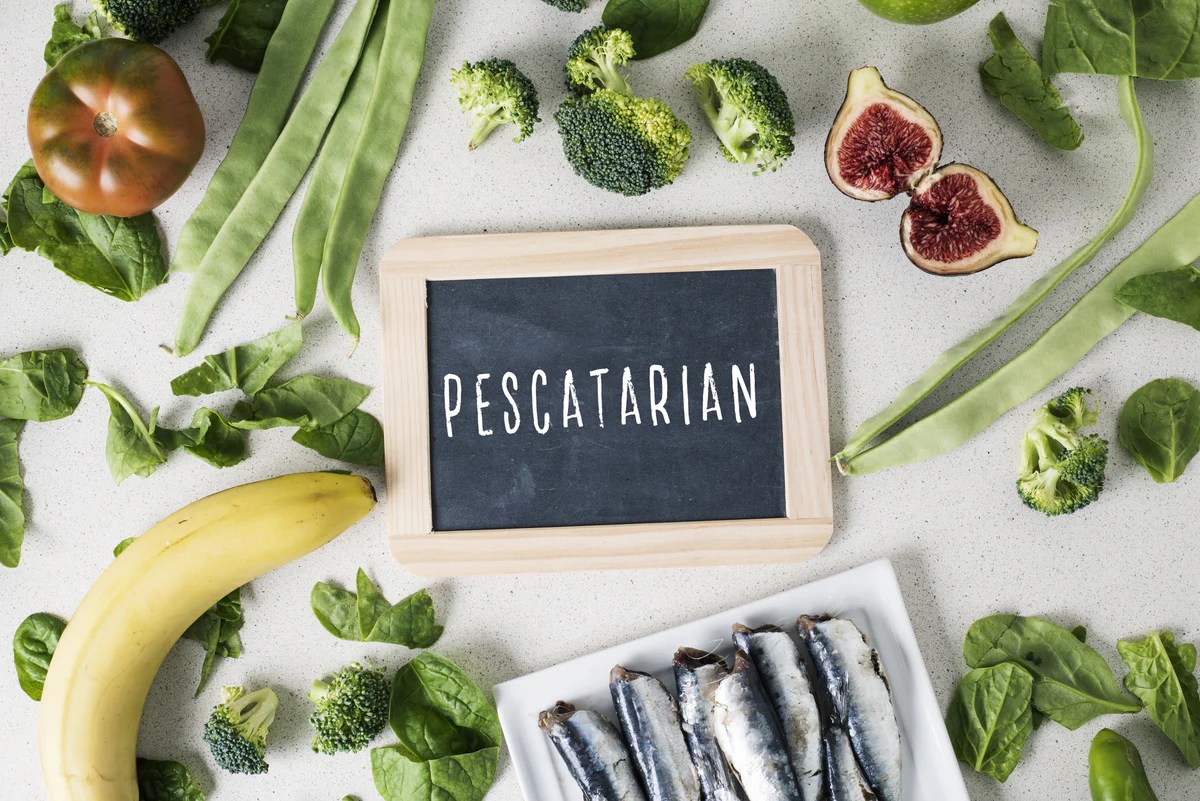Benefits of being pescatarian – Embark on a culinary adventure with a pescatarian diet, where the bounty of the sea meets the wonders of well-being. Dive into the depths of this enriching lifestyle and uncover its transformative benefits for your health, the planet, and your taste buds.
From heart-healthy delights to environmental sustainability, the pescatarian path offers a plethora of advantages that will inspire you to make a conscious choice towards a more fulfilling and balanced life.
Health Benefits
Embracing a pescatarian lifestyle offers a plethora of health benefits, particularly for the heart. Let’s delve into the ways this diet can enhance your cardiovascular health and overall well-being.
A pescatarian diet is rich in omega-3 fatty acids, which have been shown to reduce inflammation and improve blood flow. Omega-3s help lower blood pressure and triglycerides, reducing the risk of heart attacks and strokes.
Reduced Risk of Chronic Diseases
Furthermore, a pescatarian diet is linked to a lower risk of chronic diseases such as type 2 diabetes. The high fiber content in fish and plant-based foods helps regulate blood sugar levels and improves insulin sensitivity.
Weight Management and Well-being
Pescatarian diets are generally lower in calories and saturated fat compared to meat-based diets. This can aid in weight management and promote overall well-being. The inclusion of fish provides a lean source of protein, which helps maintain muscle mass and supports a healthy metabolism.
Environmental Sustainability
A pescatarian diet offers significant environmental advantages compared to meat-based diets. By reducing meat consumption and relying more on seafood, pescatarians contribute to the preservation of the planet’s resources and ecosystems.
Greenhouse Gas Emissions
Meat production, particularly beef and lamb, is a major contributor to greenhouse gas emissions. These emissions result from the methane produced by livestock, as well as the deforestation required for grazing land. By choosing fish over meat, pescatarians help mitigate these emissions and combat climate change.
Marine Ecosystems
Overfishing and unsustainable fishing practices have led to the depletion of fish stocks and disruption of marine ecosystems. By promoting sustainable seafood choices, pescatarians support responsible fishing practices and help preserve the health of our oceans.
Fish Stock Preservation
A well-managed pescatarian diet can help preserve fish stocks. By choosing fish species that are abundant and sustainably harvested, pescatarians contribute to the long-term viability of these populations and ensure a healthy marine ecosystem for future generations.
Variety and Accessibility
A pescatarian diet offers an abundance of diverse seafood options, providing a wide range of flavors, textures, and nutritional benefits. From the depths of the ocean to the freshwater rivers, the pescatarian palate can explore a vast culinary landscape.
The accessibility of seafood varies depending on the region, but in general, it is a widely available and affordable protein source compared to other animal-based options. Whether it’s fresh, frozen, or canned, seafood can be incorporated into a variety of dishes, making it a versatile and convenient choice.
Seafood Variety
| Seafood Type | Examples |
|---|---|
| Fish | Salmon, tuna, mackerel, cod, tilapia |
| Shellfish | Shrimp, crab, lobster, oysters, mussels |
| Crustaceans | Shrimp, prawns, crayfish, lobster |
| Cephalopods | Squid, octopus, cuttlefish |
| Echinoderms | Sea urchins, sea cucumbers |
Pescatarian Dishes, Benefits of being pescatarian
- Grilled Salmon with Lemon and Herbs: A classic dish that showcases the delicate flavor of salmon, enhanced by fresh lemon and aromatic herbs.
- Shrimp Scampi: A flavorful Italian dish featuring succulent shrimp sautéed in a garlicky white wine sauce.
- Tuna Poke Bowl: A refreshing and customizable dish that combines raw tuna with rice, vegetables, and a tangy sauce.
- Fish Tacos: A popular Mexican dish that combines grilled or fried fish with fresh toppings in a warm tortilla.
- Cioppino: A hearty Italian stew that features a variety of seafood, including fish, shellfish, and crustaceans, in a flavorful tomato-based broth.
Potential Challenges and Considerations
Adopting a pescatarian diet offers numerous benefits, but it also comes with certain potential challenges and ethical considerations that require attention.
Nutrient Adequacy
Pescatarians may face a risk of nutrient deficiencies, particularly vitamin B12, iron, and omega-3 fatty acids, which are primarily found in animal products. To overcome these challenges, it is essential to plan meals carefully and consider supplementation as necessary. Plant-based sources of these nutrients, such as fortified cereals, leafy greens, and algae supplements, can also be incorporated into the diet.
Ethical Considerations
Seafood consumption raises ethical concerns related to overfishing, bycatch, and the welfare of marine life. Sustainable seafood practices, such as choosing fish from well-managed fisheries and opting for species that are not endangered, can help mitigate these concerns. Additionally, pescatarians can consider supporting organizations that promote responsible fishing practices and advocate for marine conservation.
Final Wrap-Up

As you embrace the pescatarian lifestyle, you’ll not only enhance your health and contribute to a greener planet but also embark on a culinary journey filled with diverse flavors and endless possibilities. Remember, every seafood dish you savor is a testament to the wonders of the ocean and a step towards a more sustainable future.
Questions and Answers: Benefits Of Being Pescatarian
Is a pescatarian diet nutritionally complete?
Yes, a well-planned pescatarian diet can provide all the essential nutrients your body needs, including protein, omega-3 fatty acids, vitamins, and minerals.
Can I lose weight on a pescatarian diet?
Yes, a pescatarian diet can support weight loss as it is typically lower in calories and saturated fat than meat-based diets.
Is seafood consumption ethical?
Seafood consumption can raise ethical concerns, such as overfishing and bycatch. However, choosing sustainable seafood options and supporting responsible fishing practices can help minimize the impact on marine ecosystems.





Leave a Comment